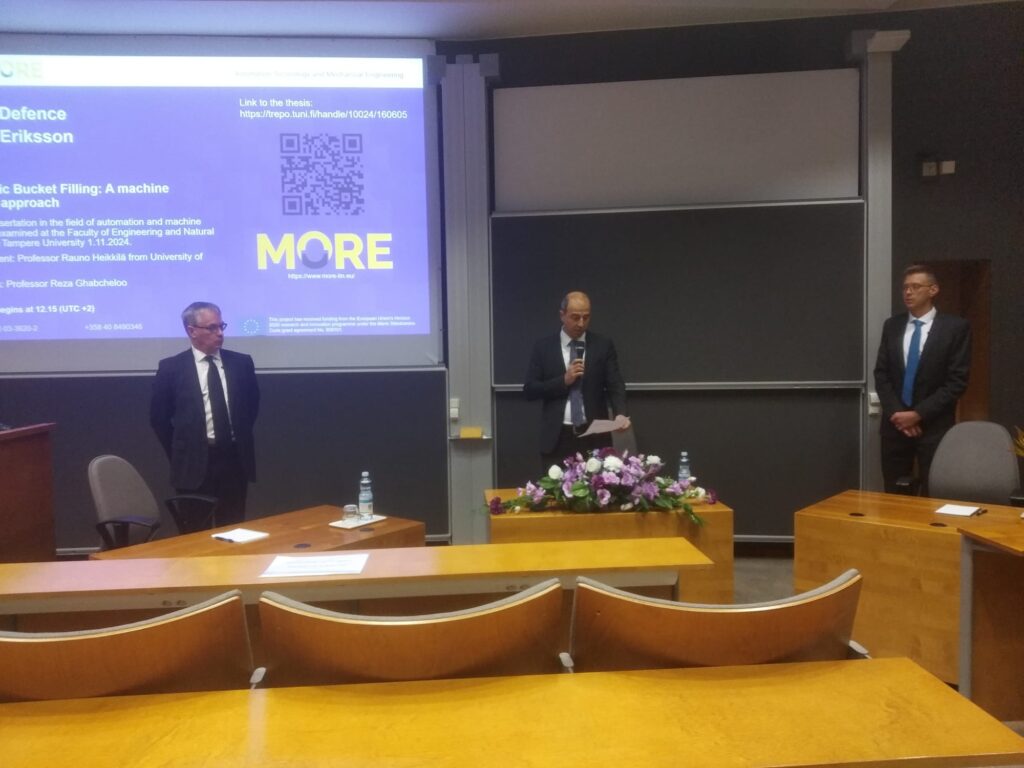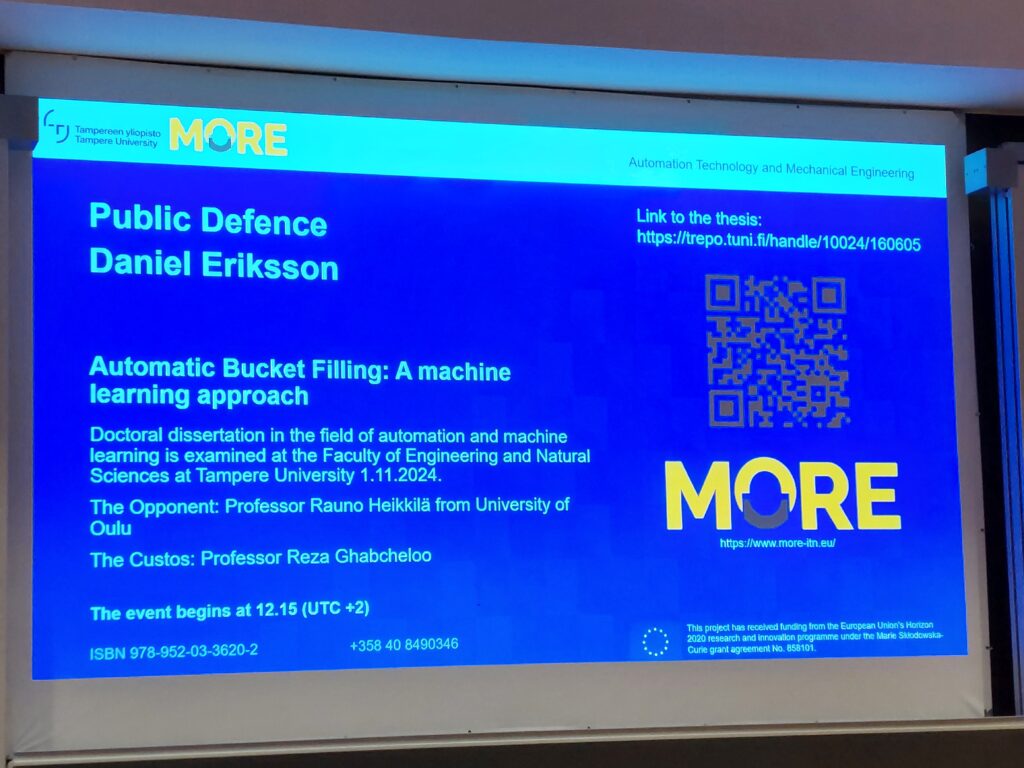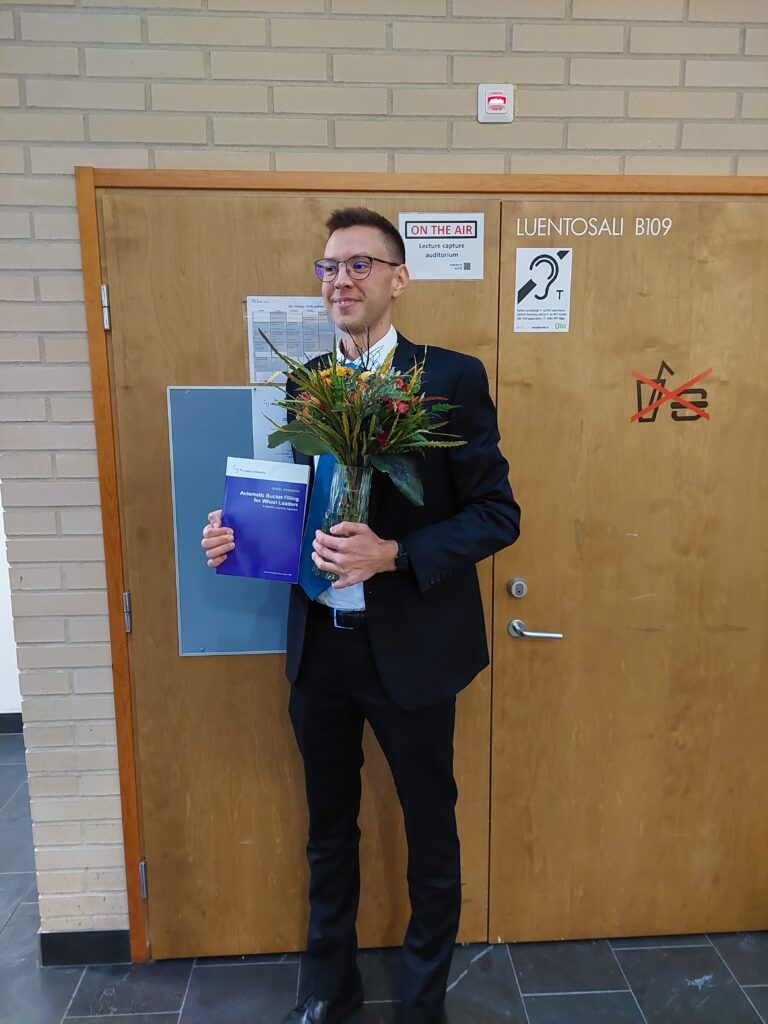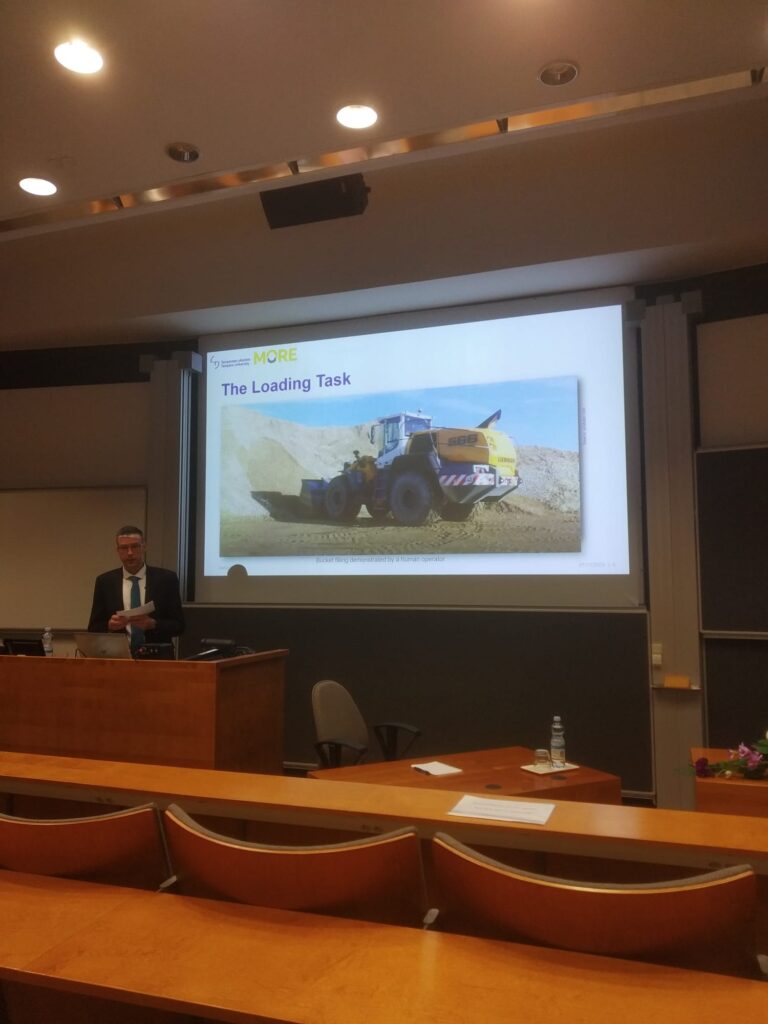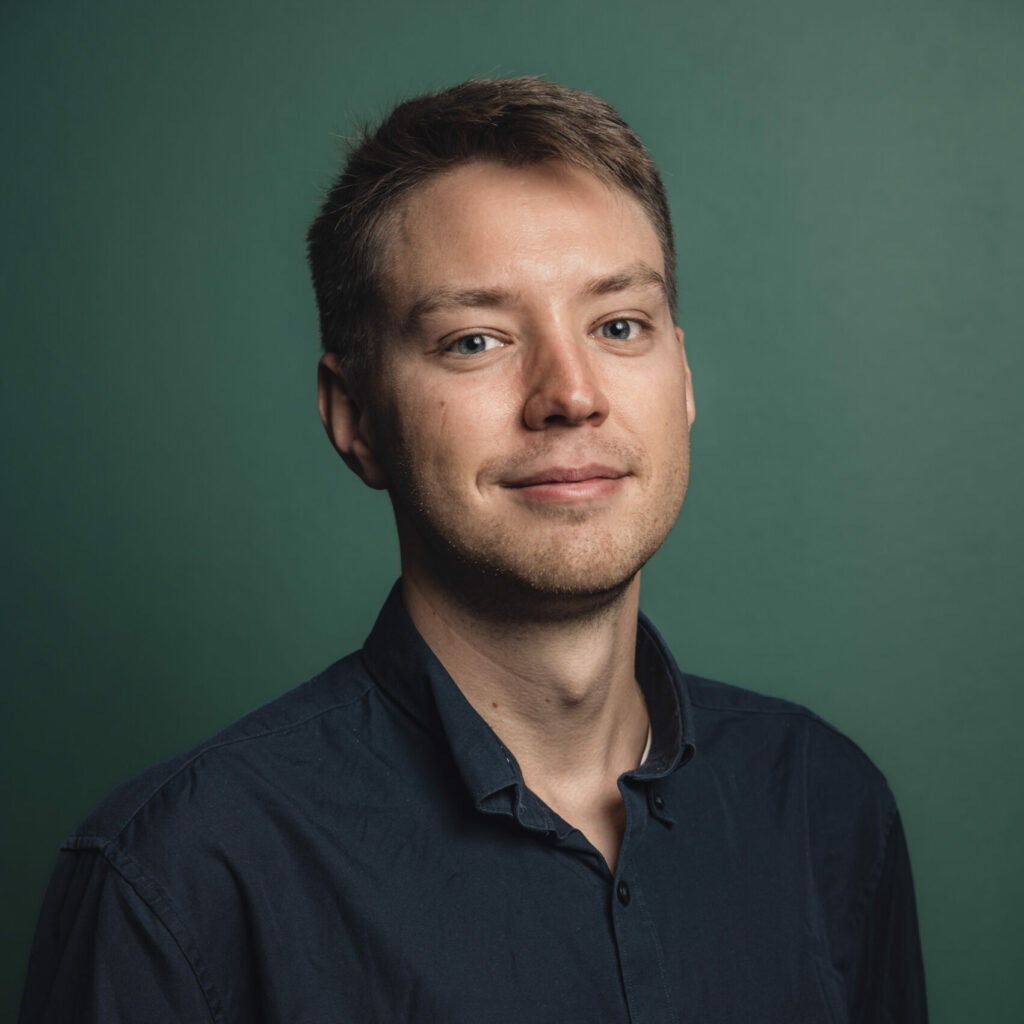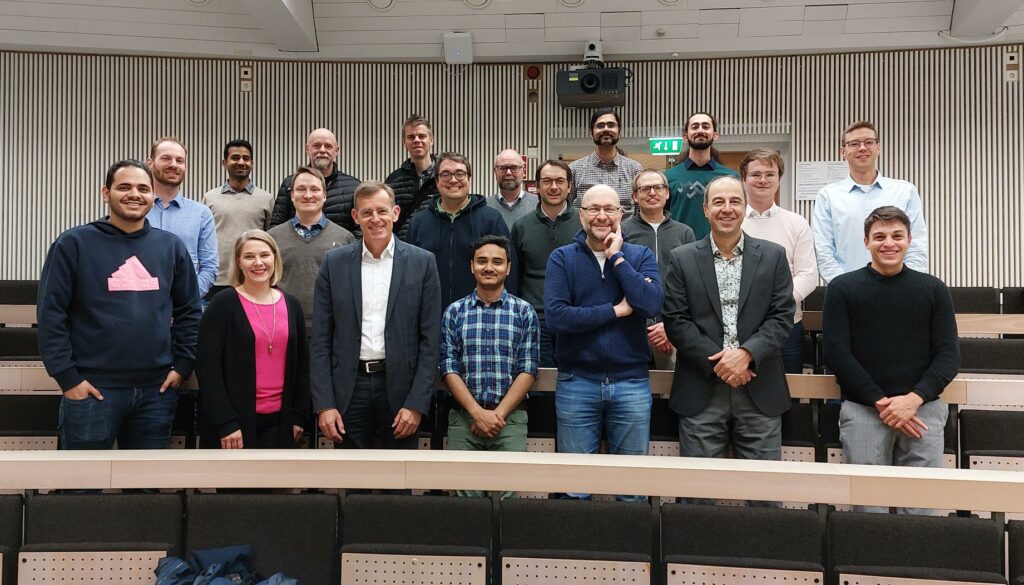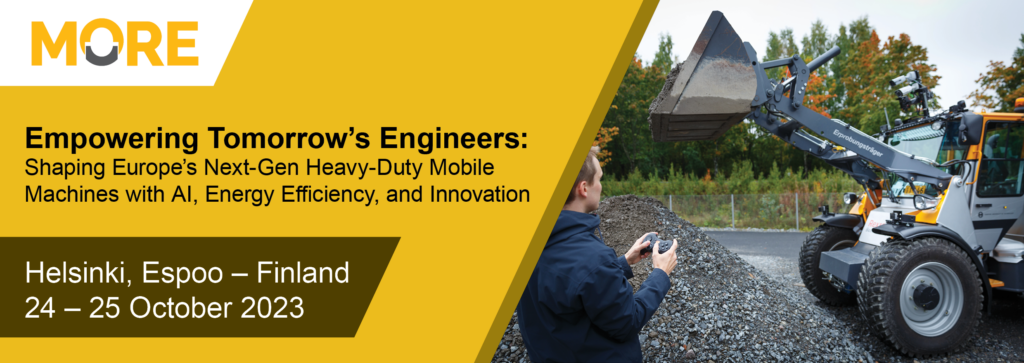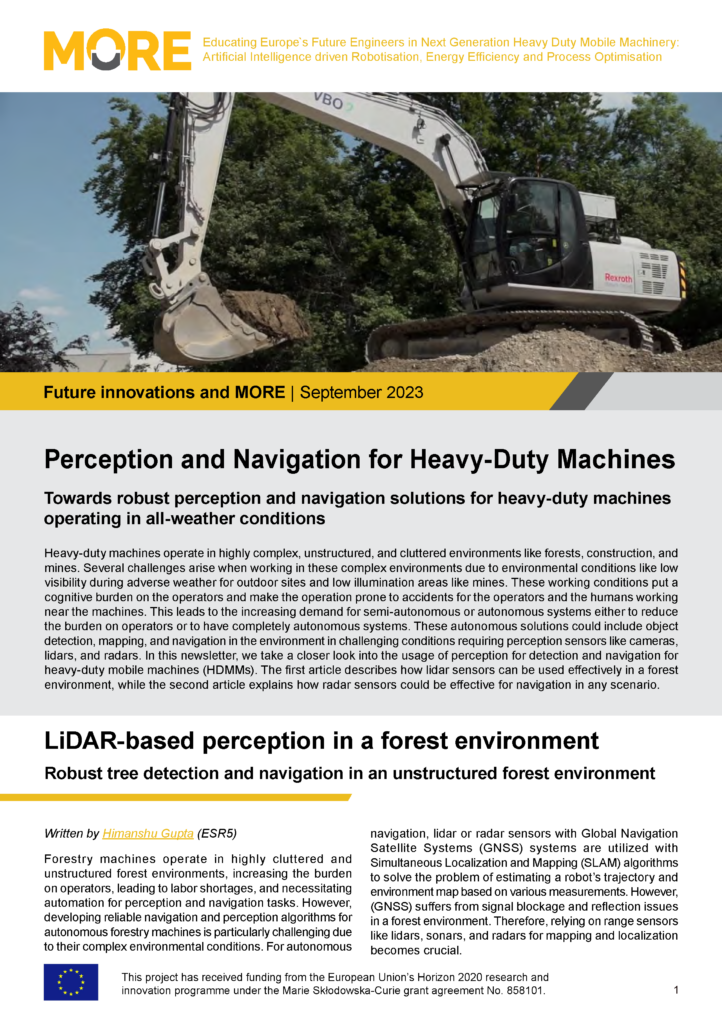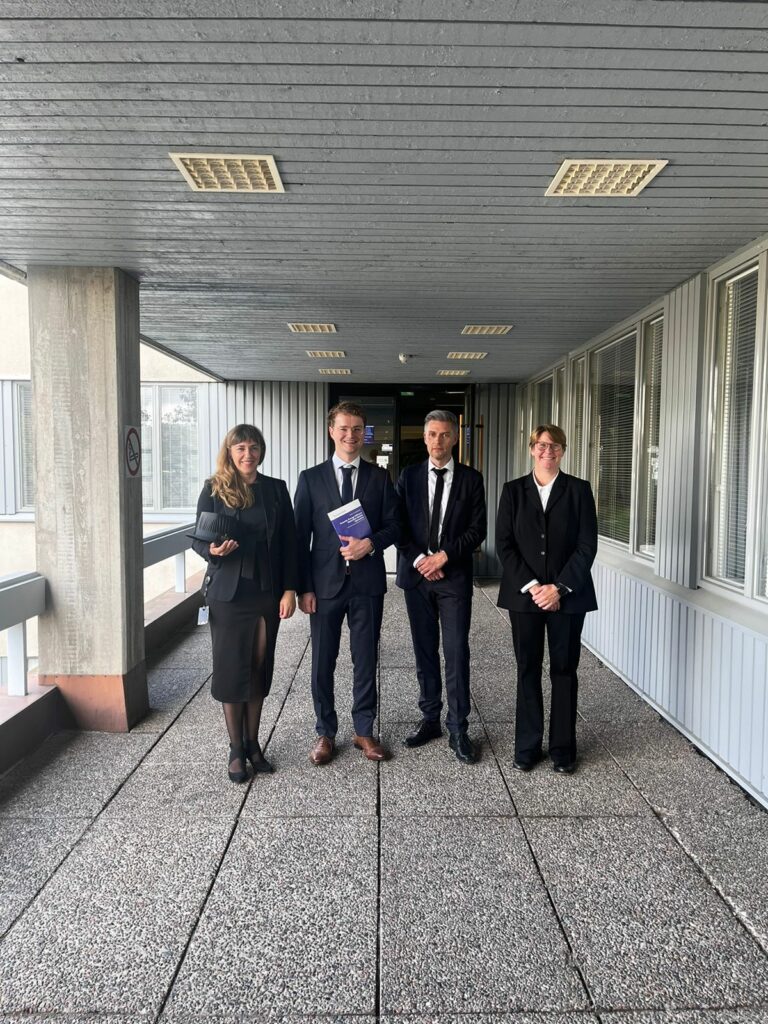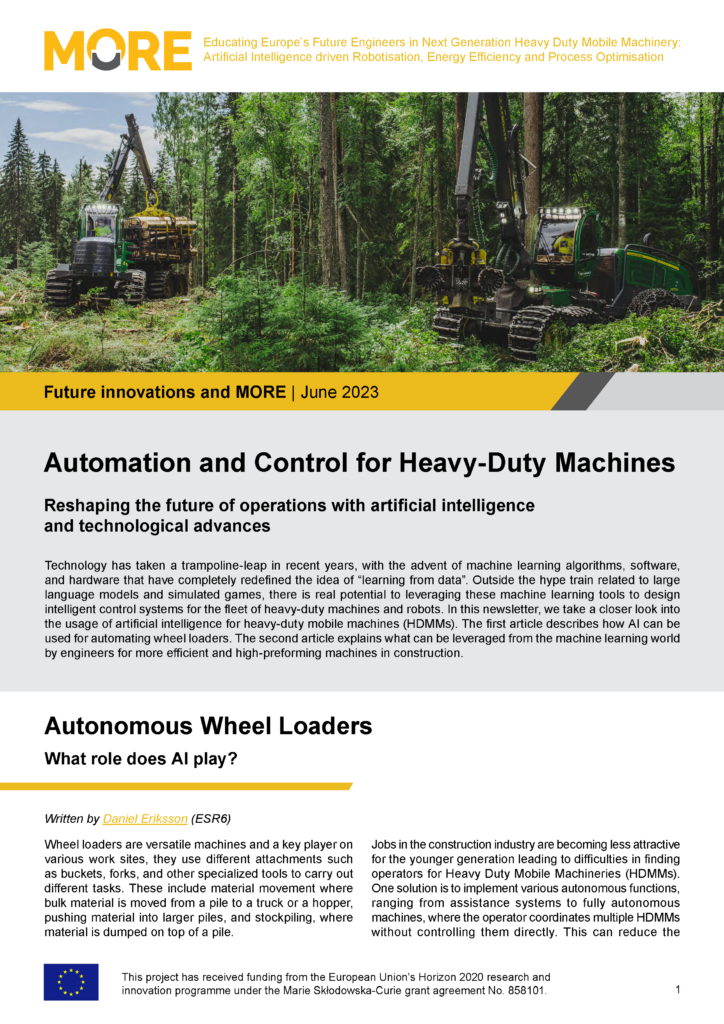MORE early stage researcher, Tyrone Machado will publicly defend his doctoral dissertation, A Path Towards Business Cases for Automated and Autonomous Heavy-Duty Mobile Machines: An Interdisciplinary Approach, at the Faculty of Engineering and Natural Sciences, Tampere University, on Friday, 22 November 2024, at 12:00. It will take place in auditorium K1702, Konetalo building, Hervanta campus, Tampere, with Professor Aki Mikkola from LUT University and Doctor Harri Kulmala from DIMECC Oy serving as Opponents. Professor Reza Ghabcheloo will act as the Custos.
Tyrone’s research, grounded in Automation Science and Engineering, tackles the limited commercialisation of autonomous heavy-duty mobile machines (HDMMs) beyond mining applications. While autonomous dump trucks have been effectively employed in mines for years, wider adoption for other HDMMs, like excavators and wheel loaders, remains limited. Through an interdisciplinary lens combining engineering, business, and management, Tyroneexplores new business frameworks that could drive broader adoption of these technologies.
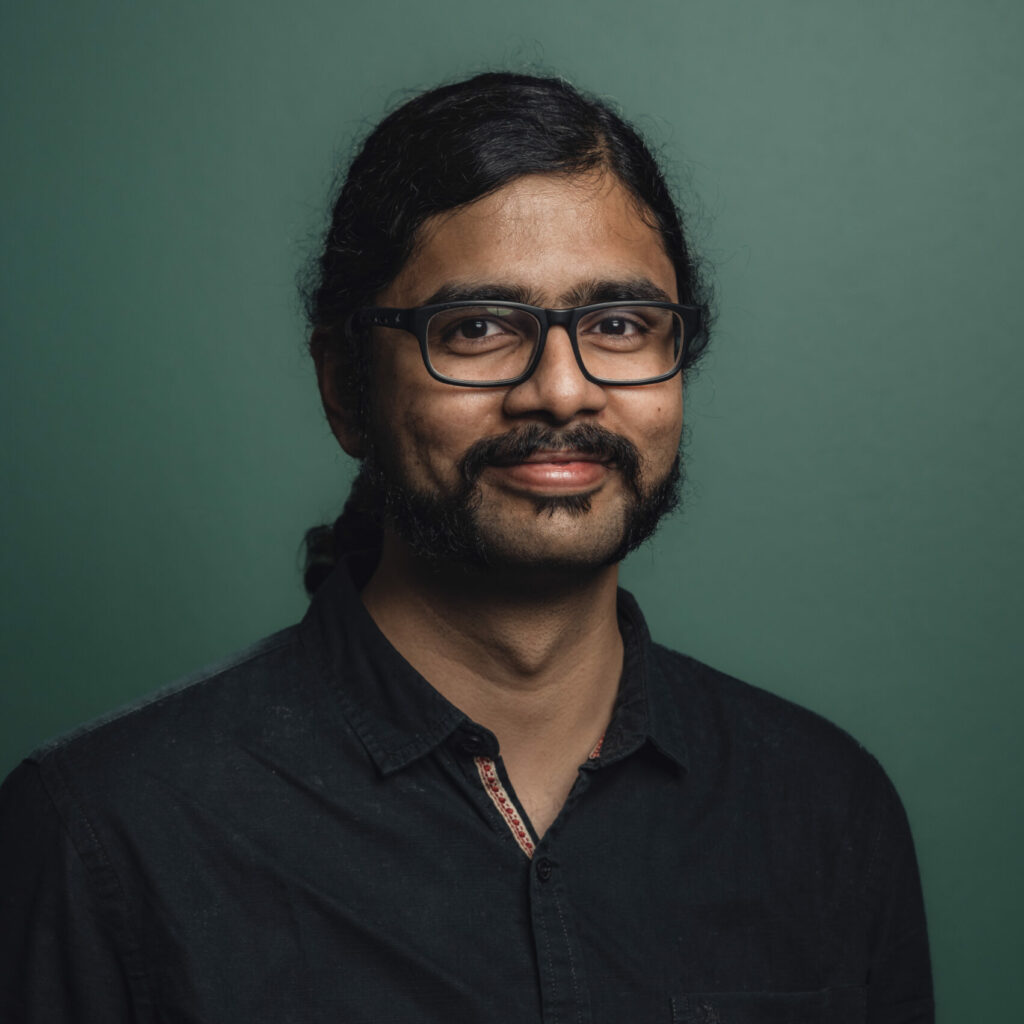
Tyrone points out that the HDMM sector faces pressing labour shortages due to ageing workforces and the need for highly skilled operators. “Would you work in an environment where your body is subjected to adverse conditions like dust, snow, rain, loud noises, and vibrations?” Tyrone asks, highlighting the difficult conditions faced by HDMM operators. He contends that autonomous HDMMs can mitigate these labour issues, enhancing operational efficiency and safety while reducing costs.
Tyrone’s research emphasises that fostering interdisciplinary collaboration will be crucial in overcoming barriers to automation in the HDMM sector and unlocking its full potential.
The public defence will take place at 12:00 22 November 2024. The public defence can be followed via remote connection.
